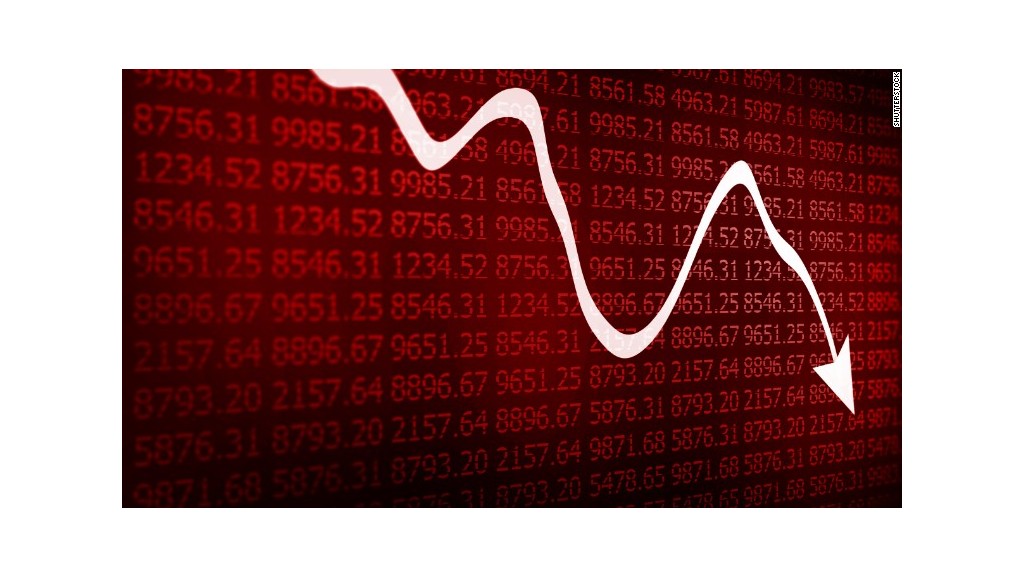
The global stock rout rolled across Asia on Friday.
Major Asian stock markets sank as investors continued to dump riskier assets. Japan's Nikkei tumbled 4.8%, bringing its losses for the week to more than 11%. The Hang Seng in Hong Kong slipped 1.2% after plunging 3.9% the day before.
In South Korea, trading was temporarily halted on the Kosdaq, a market focused on small technology companies, after it nosedived more than 8%. It recovered slightly after the suspension, closing down 6.1%. The country's main index, the Kospi, ended the day 1.4% lower.
The falls in Asia follow drops in U.S. and European markets on Thursday amid worries over low oil prices and the health of the banking sector.
While Japanese markets were closed for a public holiday on Thursday, missing a full day of brutal trading, stocks caught up with the decline on Friday. Stocks in Tokyo have been hammered this week as investors turned to assets considered safer bets, like gold, government bonds and Japan's currency, the yen.
The yen's recent surge -- it's trading near its strongest level against the dollar in more than 15 months -- is bad news for big Japanese companies because it hurts exports. It also undermines efforts by the Bank of Japan to stimulate the country's struggling economy.
Related: U.S. stocks dive to lowest level in nearly 2 years
Japan's central bank cut a key interest rate into negative territory two weeks ago, a move that triggered a brief drop in the yen. But that decline has now been more than offset by subsequent gains, underscoring the challenges facing central banks around the world in the current turmoil.
Cheap oil has also continued to alarm investors.
U.S. crude oil plunged below the threshold of $27 a barrel Thursday, adding to fears about weak global demand. It later recovered, after Dow Jones reported comments from an official from the United Arab Emirates about the possibility of output cuts.
On Friday morning in Asia, it was trading around $27.50 a barrel.
Mainland Chinese stock markets have been closed all week for the Lunar New Year holiday. The Shanghai and Shenzhen markets will reopen Monday.


